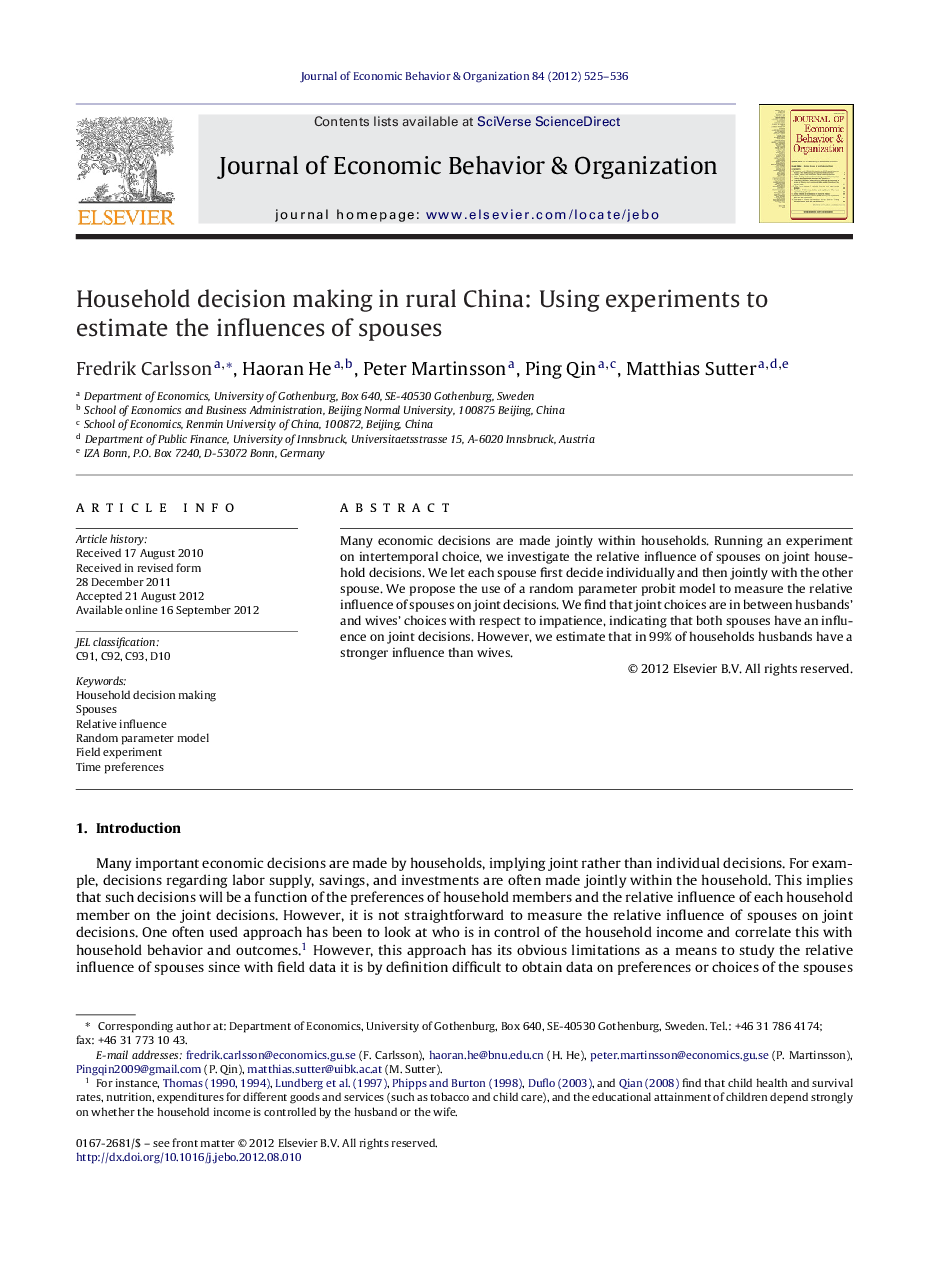| Article ID | Journal | Published Year | Pages | File Type |
|---|---|---|---|---|
| 883724 | Journal of Economic Behavior & Organization | 2012 | 12 Pages |
Many economic decisions are made jointly within households. Running an experiment on intertemporal choice, we investigate the relative influence of spouses on joint household decisions. We let each spouse first decide individually and then jointly with the other spouse. We propose the use of a random parameter probit model to measure the relative influence of spouses on joint decisions. We find that joint choices are in between husbands’ and wives’ choices with respect to impatience, indicating that both spouses have an influence on joint decisions. However, we estimate that in 99% of households husbands have a stronger influence than wives.
► Running an experiment on intertemporal choice, we investigate the relative influence of spouses on joint household decisions. ► We propose the use of a random parameter probit model to measure the relative influence of spouses on joint decisions. ► We find that joint choices are in between husbands’ and wives’ choices with respect to impatience, indicating that both spouses have an influence on joint decisions.
